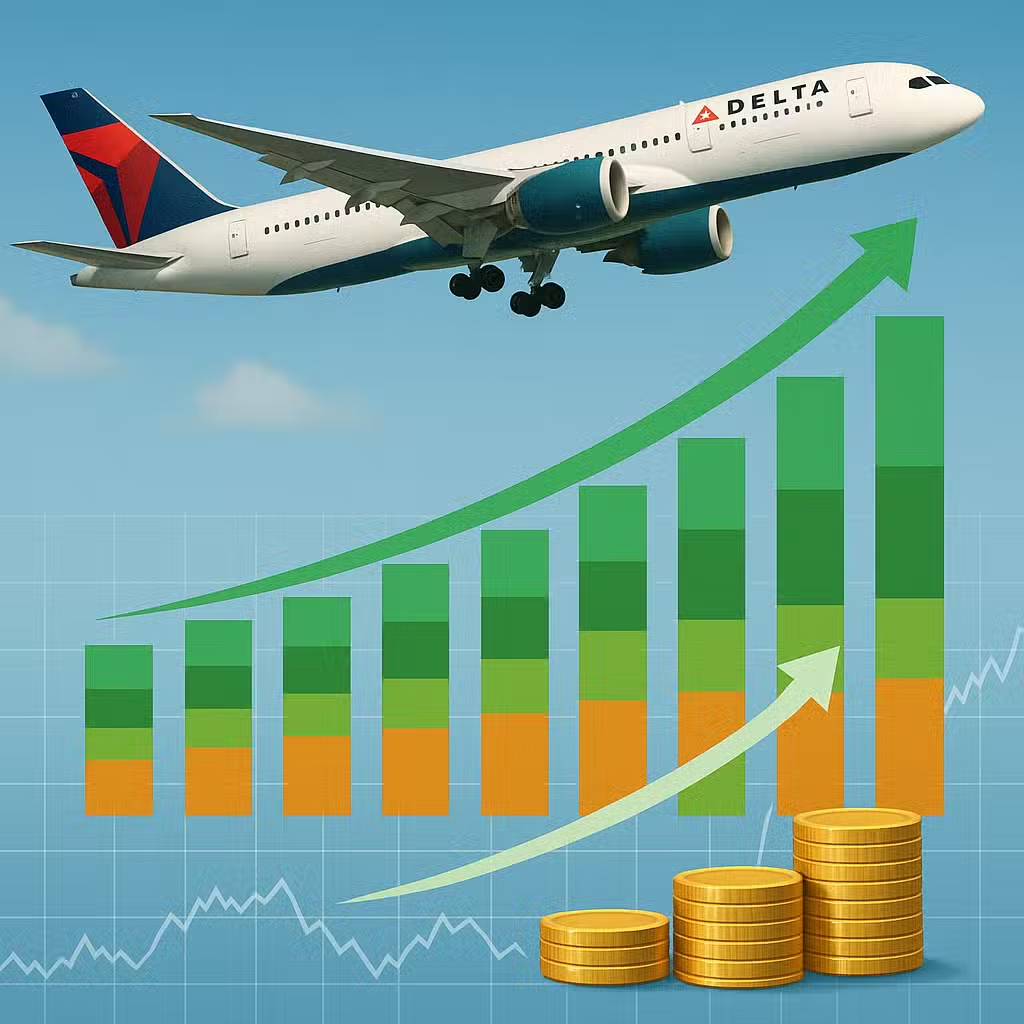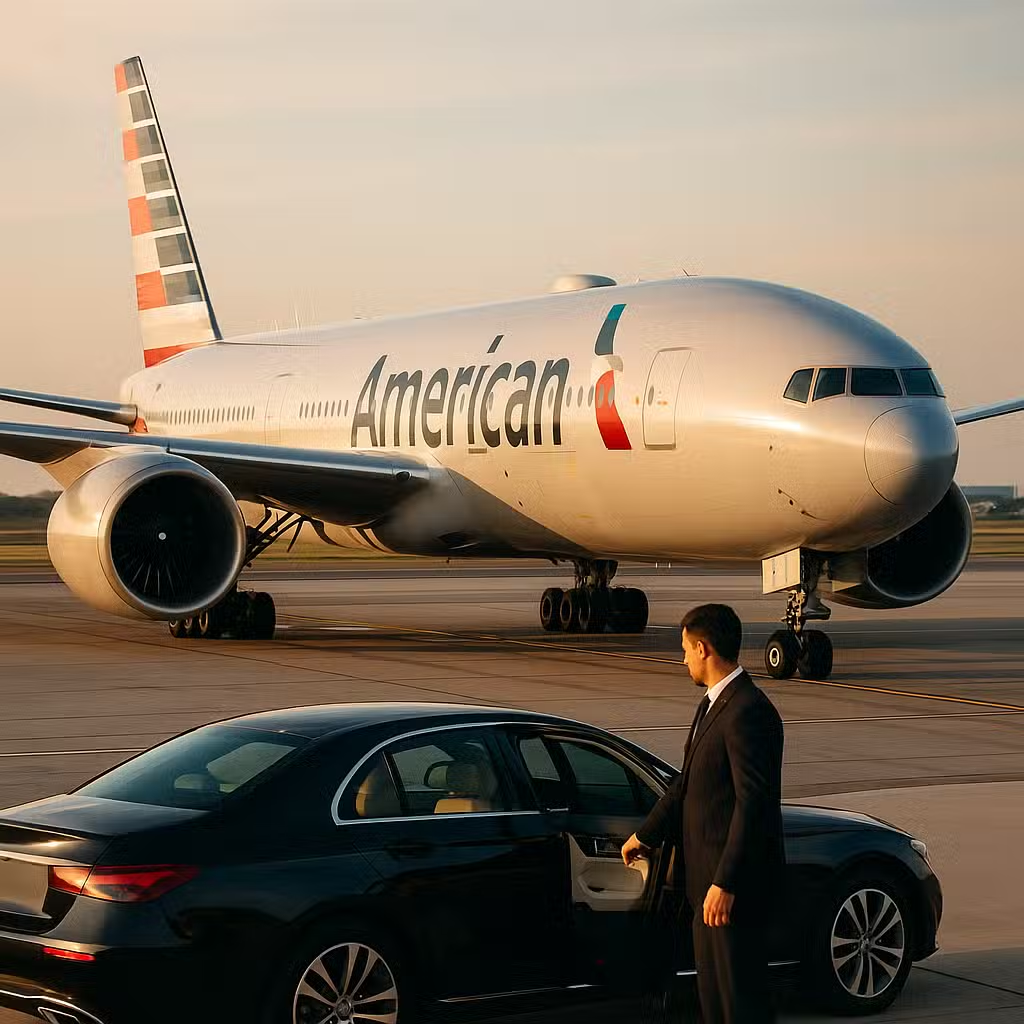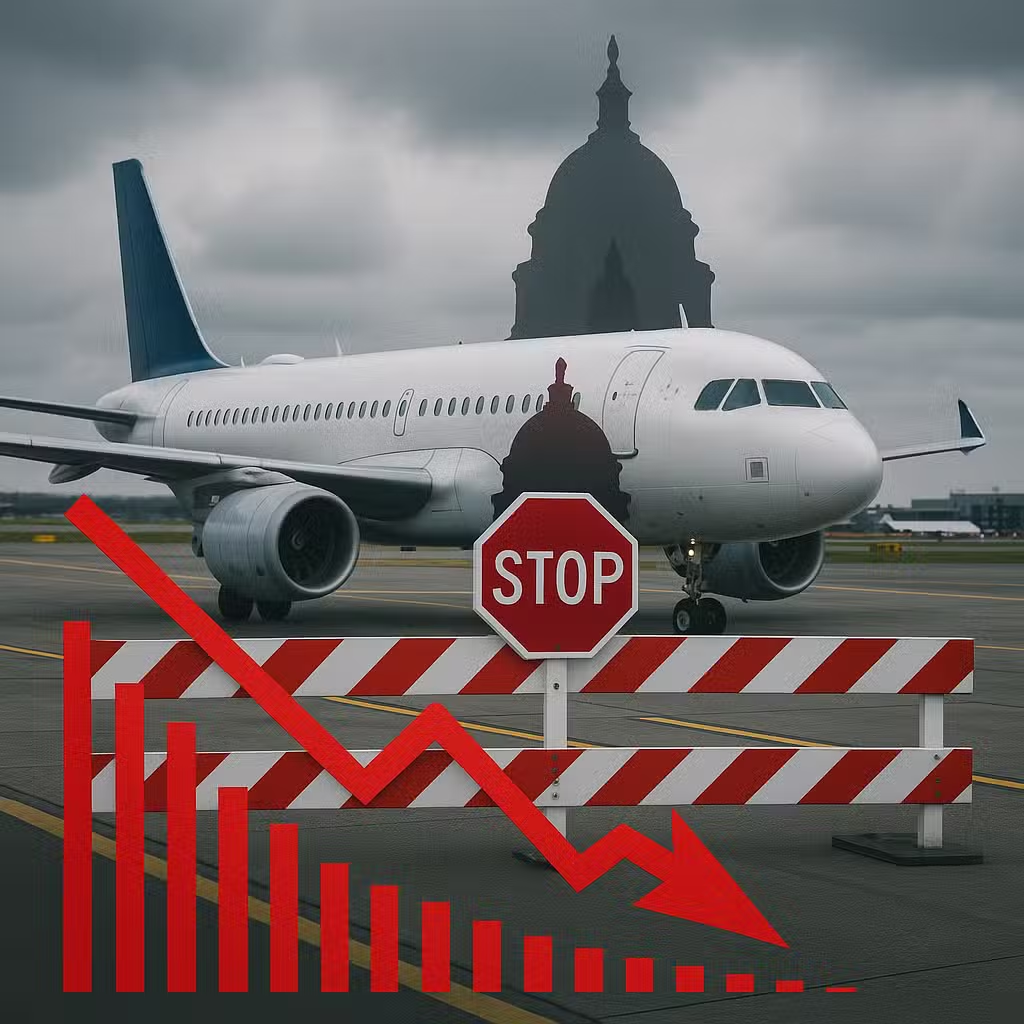Delta’s Premium Travel Expected to Surpass Economy Sales in 2025, Signaling Higher Revenue Potential
Imagine if more people started buying movie tickets for the fancy reclining seats instead of regular ones—airlines are seeing something similar, and it’s changing how they make money. Let’s look at why this matters for investors and what it could mean for your portfolio.
Why Investors Should Care About Premium Seats
Delta Air Lines is making more money from travelers who pay extra for bigger, comfier seats at the front of the plane. In fact, Delta’s premium cabin ticket revenue jumped 9% from last year, reaching nearly $5.8 billion, while standard coach seat sales dropped 4% to just over $6 billion. If this keeps up, premium seats could soon earn more than regular ones for Delta, at least for a few quarters next year.
This trend isn’t just about Delta. Other airlines like Frontier are also trying to attract travelers willing to spend more for extra comfort. For investors, this shift could mean big changes in which airlines lead the pack and how they grow profits.
Bull Case: Why Premium Seats Look Like a Win
- Higher Profit Margins: Premium seats cost more to buy but don’t cost much more to provide, so airlines keep more of the money.
- Sticky Customers: Travelers who pay for comfort are more likely to stick with one airline and join loyalty programs, bringing in steady revenue.
- Industry-Wide Shift: Delta says only 43% of its revenue now comes from regular seats, down from 60% in 2010. Almost 60% comes from premium seats and loyalty programs.
- No Slowdown in Demand: Delta’s CEO says he doesn’t see people losing interest in premium travel anytime soon, which supports their bright earnings forecast for 2025 and beyond.
Bear Case: Risks and Challenges
- Economic Downturns: If the economy hits a rough patch, fewer people may splurge on premium seats, hurting airline profits.
- Costly Upgrades: Adding fancy seats like lie-flat beds or bigger screens can delay new planes and cost a lot, sometimes slowing down growth.
- Competition: If every airline adds more premium seats, it could lead to price wars or too many empty fancy seats.
Historical Context and Extra Insight
This shift isn’t brand new, but it’s speeding up. According to IATA, global premium air travel demand grew by 8% in 2023, outpacing regular economy travel, which rose just 4%. Airlines that focus on premium products have often weathered downturns better, as seen during the post-2008 recovery when luxury travel bounced back faster than budget travel.
Investor Takeaway
- Watch Airline Strategies: Look for airlines investing in premium products and loyalty programs, as these may offer better growth and stability.
- Diversify: Don’t put all your eggs in one basket—consider exposure to both premium-focused and budget airlines to manage risk.
- Monitor the Economy: If signs point to a slowdown, be cautious with airline stocks, since premium demand could slip.
- Track Industry Data: Follow passenger trends through sources like IATA to spot shifts in travel habits early.
- Think Long-Term: Trends like these don’t change overnight, so patient investors may benefit from sticking with winners in the premium travel space.
For the full original report, see CNBC







